Uber co-founder Travis Kalanick resigned as chief executive of the ride-hailing giant Wednesday, pushed out by investors just a week after he announced he was going on an indefinite leave of absence.
The San Francisco startup, valued at near $70 billion, has been rocked this year by allegations of a corrosive culture that allowed sexual harassment and other bad behavior to go unchecked for years.
- Uber drivers have their say about Kalanick’s resignation
- Column: With Travis Kalanick out, we’ll see the real value of Uber — and it won’t be pretty
Here’s a timeline with the highlights and lowlights of Uber’s 2017.
Kalanick resigns as CEO
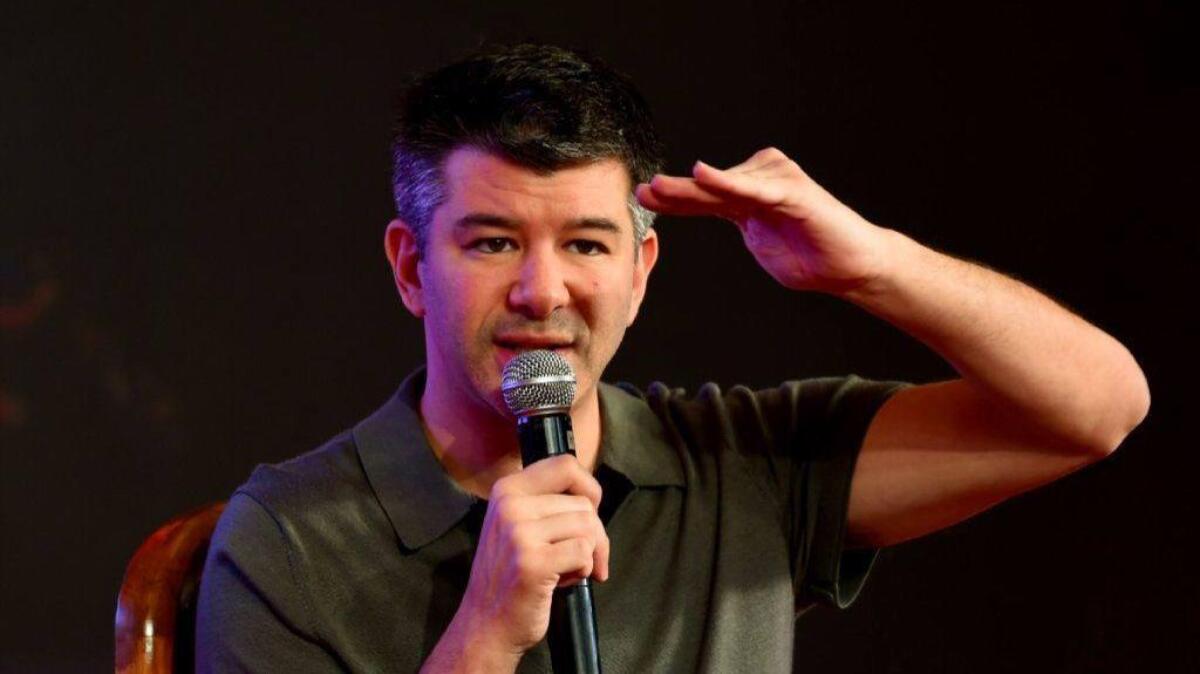
Facing mounting investor pressure brought on by a torrent of scandals, Travis Kalanick, co-founder and chief executive of ride-hailing company Uber, resigned — just a week into a leave of absence meant to quell concerns about his management style.
The New York Times reported that five of Uber’s major investors demanded Kalanick’s immediate resignation because the company needed a change in leadership. Kalanick reached his decision to resign after hours of talks with some of the investors.
In a statement, the board of directors praised Kalanick’s decision and noted he would remain on the board.
Board meets to discuss Holder’s recommendations
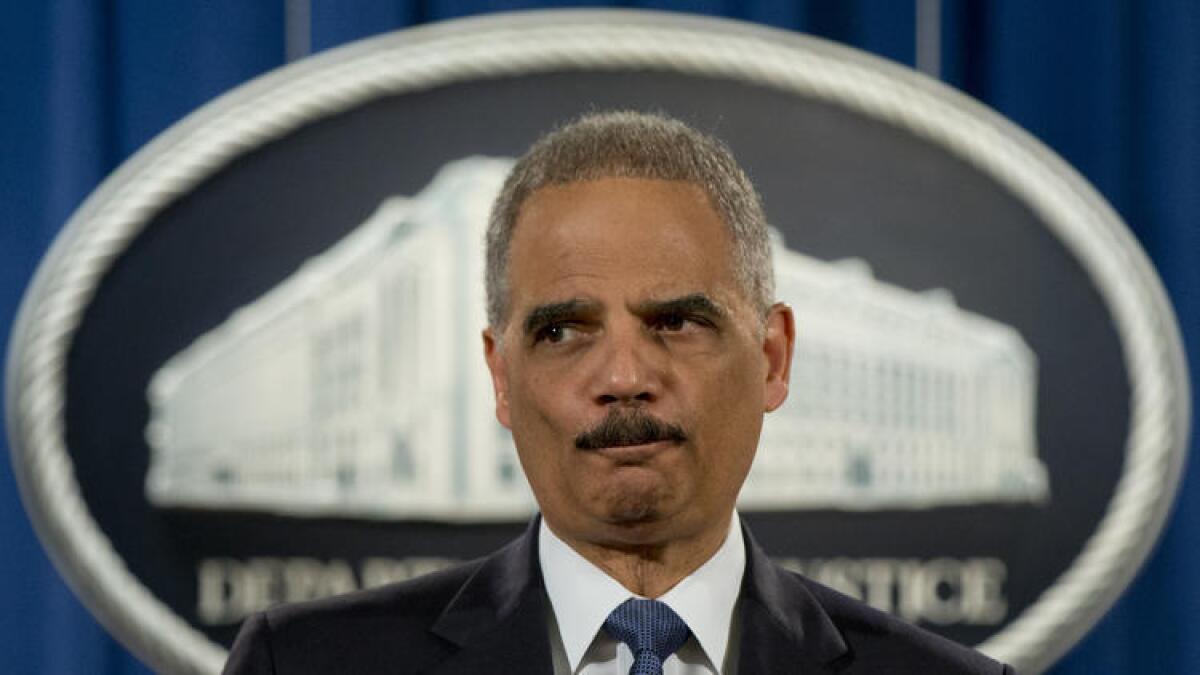
Uber’s board of directors met in Los Angeles to discuss potentially far-reaching changes to the ride-sharing company and the future of embattled Chief Executive Travis Kalanick.
The seven-person board ended up embracing recommendations from a report prepared by former U.S. Atty. Gen. Eric H. Holder Jr.
The recommendations in Holder’s report -- which would be released to the public June 13 -- included reviewing some of Kalanick’s responsibilities, urgently hiring an experienced chief operating officer, prioritizing the company’s diversity efforts, bringing on more independent board members and reformulating its 14 cultural values to be more inclusive (and eliminating values such as “Always Be Hustlin’ ” and “Meritocracy and Toe-Stepping”).
It called for the adoption of practices that are standard at many companies, such as mandatory manager training, a robust complaint process, and tightened rules around alcohol consumption in the workplace and romantic relationships between managers and their employees.
Board member makes a joke about women at a meeting on sexism, then resigns
Billionaire businessman David Bonderman resigned from Uber’s board of directors hours after making a joke about women while at a companywide meeting that was aimed at addressing the harassment of women and unprofessional conduct at the company.
Bonderman, a partner at private equity firm TPG, had interrupted fellow Uber board member Arianna Huffington while she was speaking during the meeting.
“There’s a lot of data that shows when there’s one woman on the board, it’s much more likely that there will be a second woman on the board,” Huffington said to the gathered employees.
Bonderman chimed in: “Actually, what it shows is that it’s much more likely there’ll be more talking.”
In resigning, Bonderman said his “comment came across in a way that was the opposite of what I intended, but I understand the destructive effect it had, and I take full responsibility for that.”
Ex-employee alleges sexual harassment
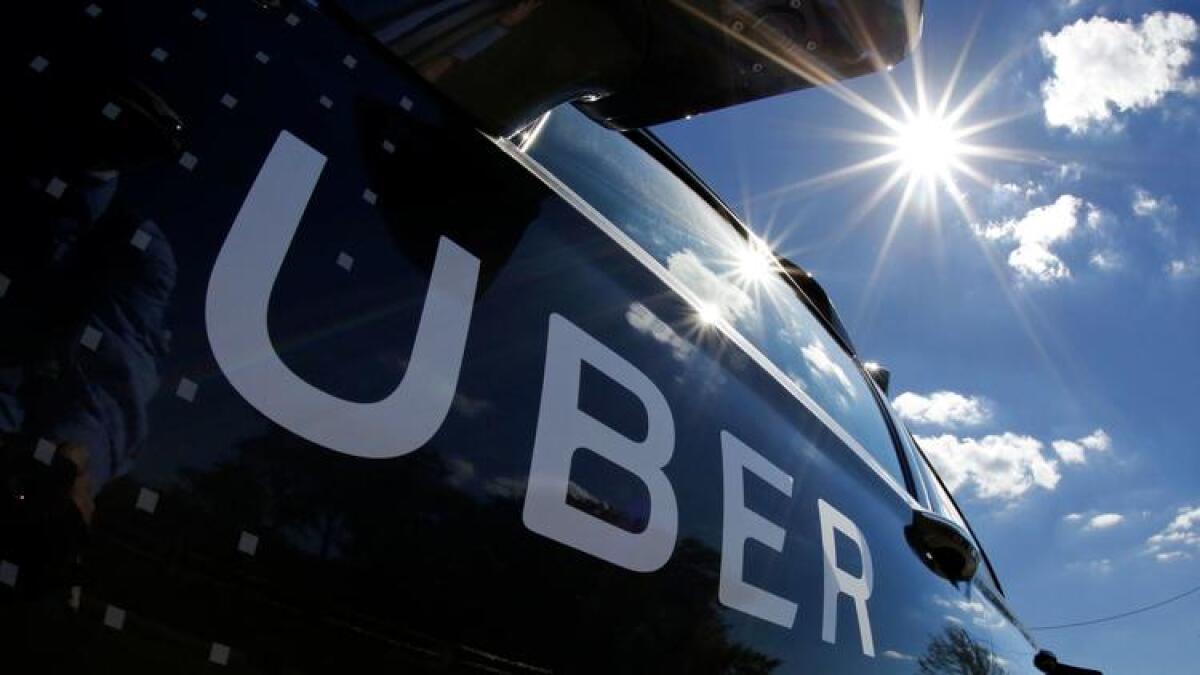
Former Uber employee Susan J. Fowler sent ripples through the tech industry in February when she alleged on her personal blog that she had been sexually harassed while working for the company, that other female engineers had reported similar problems — some involving the same manager — and that Uber’s human resources department engaged in a systemic cover-up.
CEO Travis Kalanick said in a memo to employees that the blog post was the first he’d heard of the incident. The company called in former U.S. Atty. Gen. Eric Holder to conduct an independent investigation.
Uber launches ‘180 days of change’
Uber announced it is enabling passengers to tip its U.S. drivers with a tap on its ride-hailing app for the first time, part of a push to recast itself as a company with a conscience and a heart.
The tipping option has long been available in the app of Uber rival Lyft.
Uber also announced that riders will be charged by the minute if they keep a driver waiting more than two minutes. And it’s reducing the time that riders have to cancel a ride without being charged a $5 fee: The new window will be two minutes after summoning a driver, rather than five minutes.
The moves were the first step in what Uber is billing as “180 days of change” for its U.S. drivers. It did not say what was planned during the rest of the campaign.
Rape victim sues Kalanick and former executives
A Texas woman who was raped by an Uber driver in India in 2014 filed a lawsuit against the ride-hailing company, alleging that three current and former executives violated her privacy and defamed her when they accessed and shared her medical records after the attack.
The plaintiff, identified only as Jane Doe, filed the lawsuit against Uber’s chief executive, Travis Kalanick; its former head of business, Emil Michael; and its former vice president of business in Asia, Eric Alexander.
Recode also reported that, even though the driver was convicted and sentenced to life in prison, the three executives questioned whether the plaintiff actually had been raped and whether she had colluded with Uber competitor Ola to tarnish Uber’s brand.
Travis Kalanick goes on leave indefinitely
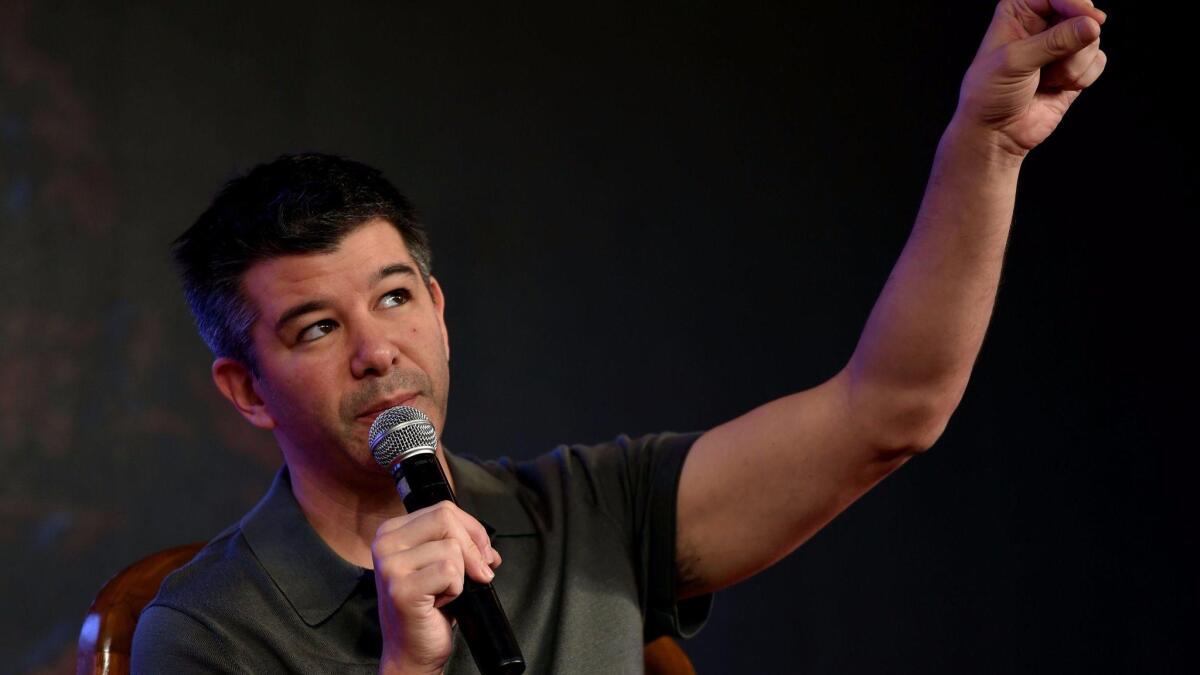
Uber CEO Travis Kalanick announced in a memo to employees that he was taking a leave of absence, acknowledging a humiliating year in which the company was accused of mishandling the medical records of a passenger who was raped by an Uber driver in India; of using trade secrets allegedly stolen from a self-driving car firm that belongs to Google’s parent company; and of covering up sexual harassment allegations.
The reason Kalanick gave for his leave of absence, though, was personal: His mother was killed in a boating accident in May, and his memo said he was taking time off to grieve.
“If we are going to work on Uber 2.0, I also need to work on Travis 2.0 to become the leader that this company needs and that you deserve,” he wrote in an email to employees.
Kalanick’s right-hand man leaves Uber
Emil Michael -- Uber’s senior vice president of business and Chief Executive Travis Kalanick’s right-hand man -- has left the ride-hailing company, according to an email he sent to employees.
It is unclear whether Michael was fired or resigned. An Uber spokeswoman confirmed that he was no longer with the company but declined to comment further.
In the email, initially obtained by the New York Times and independently verified by a person familiar with the matter, Michael said that Sunday was his last day, and that David Richter, Uber’s current vice president of strategic initiatives, would replace him.
Apple CEO reportedly threatened to ban Uber from app store
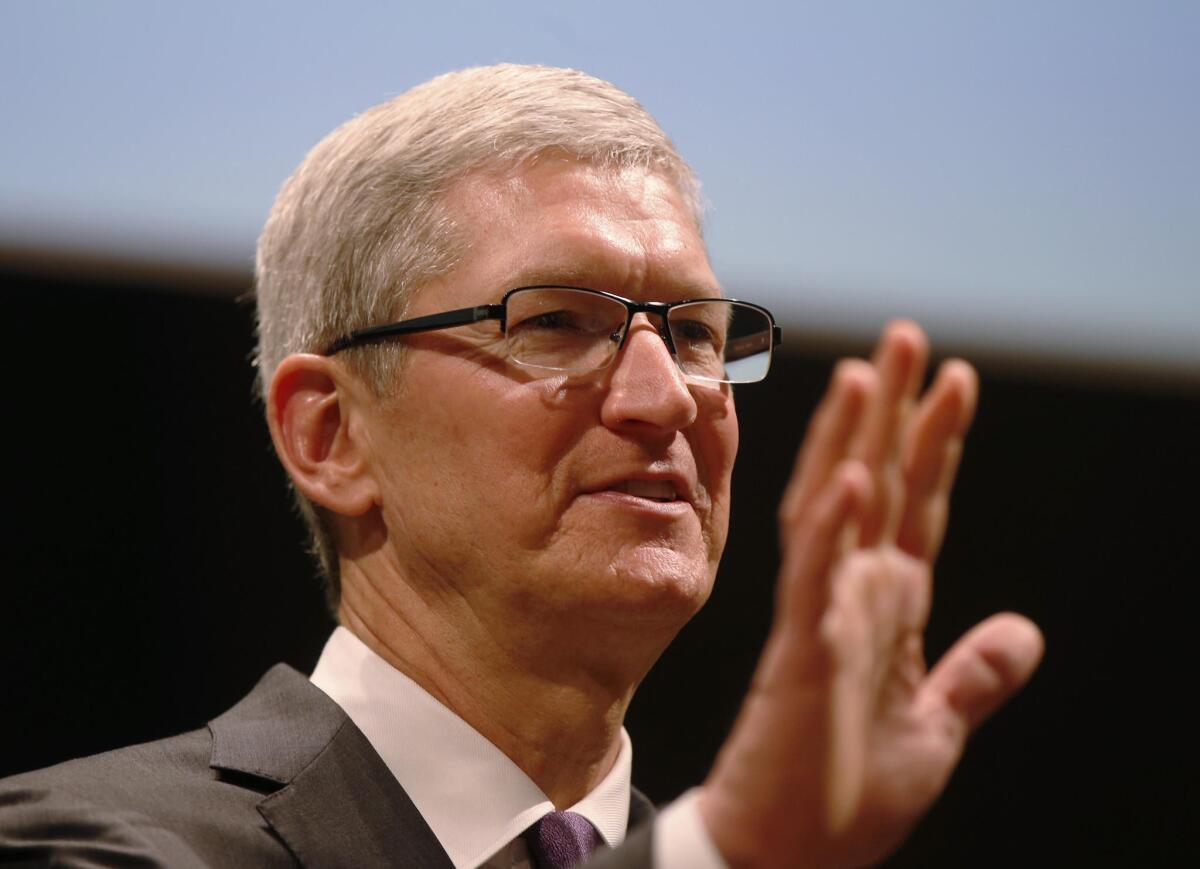
Apple Chief Executive Tim Cook reportedly threatened to kick Uber out of its app store after discovering the ride-hailing company was intentionally violating its privacy rules.
Losing access to millions of iPhone users through Apple’s app store had the potential to destroy Uber’s business, according to the New York Times, which detailed the confrontation between Cook and Uber Chief Executive Travis Kalanick.
Uber had been secretly identifying and tagging iPhones even after the app had been deleted, the New York Times reported.
In a statement to the Los Angeles Times, Uber denied the tracking allegations.
Uber fires 20 workers after harassment investigation
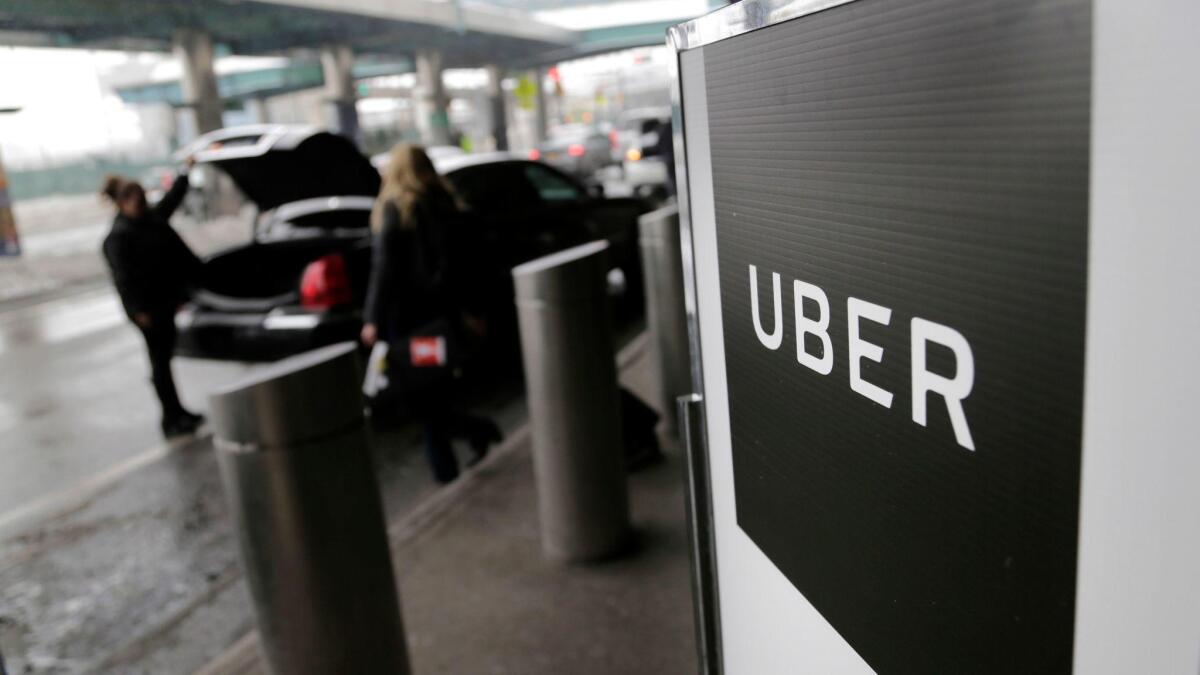
Uber has fired 20 employees after an independent investigation into harassment claims, according to a source with knowledge of the matter.
The San Francisco-based ride-hailing giant launched two separate investigations in February, one led by former U.S. Atty. Gen. Eric Holder’s firm, Covington & Burling, to examine Uber’s workplace practices, and another more narrow investigation led by law firm Perkins Coie to look into allegations of harassment.
The firings were the result of the Perkins Coie findings, a source told The Times.
At a meeting for all Uber employees, Perkins Coie said it received 215 complaints and took action in 100 instances, the person said. Some complaints are still under investigation.
Employees were told that those fired were terminated for reasons including sexual harassment, bullying, retaliation and discrimination.
Uber fires Anthony Levandowski, engineer at center of legal battle with Waymo
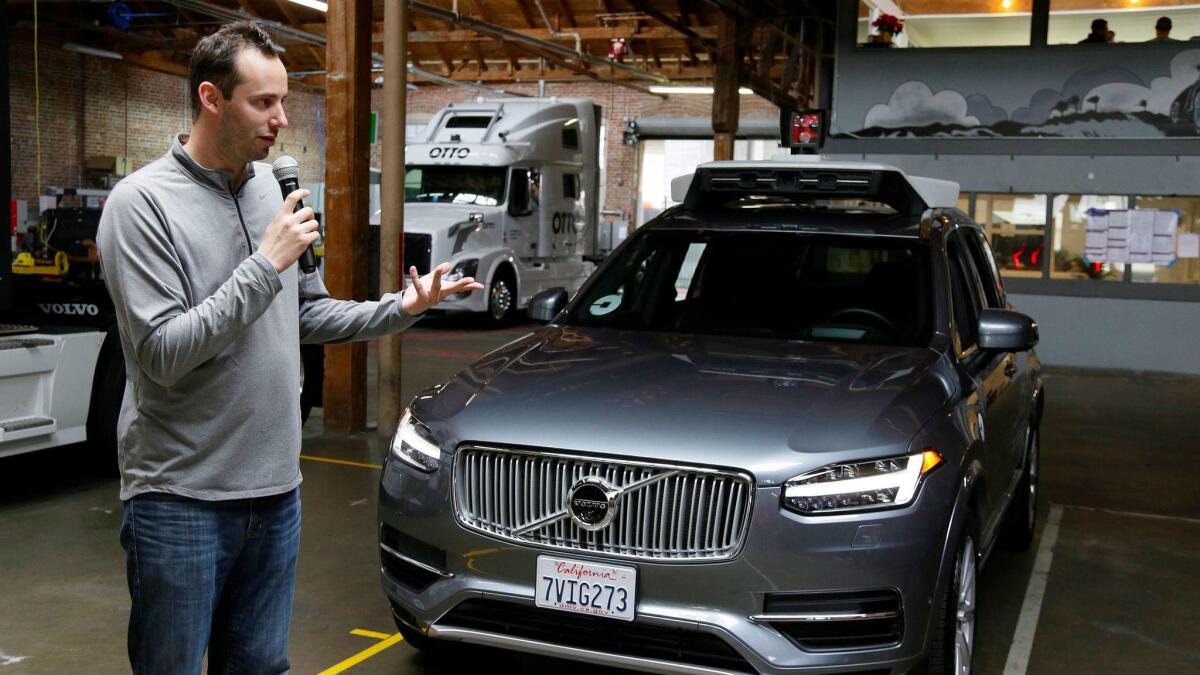
Uber fired Anthony Levandowski, the star engineer at the center of the company’s fight with self-driving rival Waymo.
Levandowski — a former Waymo employee who until recently was leading Uber’s effort to replace human drivers with robot cars — has refused to hand over documents requested by Waymo and a federal court judge in a high-profile legal battle between two Silicon Valley giants.
Judge orders: Don’t let Levandowski work on this tech
After suggesting the U.S. Department of Justice consider a criminal investigation of Uber in a trade secrets theft case, a federal judge ordered the ride-hailing company to stop the man accused of the theft from work on the technology at issue.
The order stems from a lawsuit filed by Waymo, a Google spinoff that’s still owned by Google’s parent company, Alphabet. The suit alleges that Anthony Levandowski — a former Waymo employee who had become head of Uber’s self-driving car division — stole trade secrets covering lidar, a key technology for self-driving cars, when he left Waymo.
Evidence indicates that “Uber likely knew or should have known that Levandowski had taken and retained possession of Waymo’s confidential files,” according to the judge.
Criminal probe is launched into Uber’s use of ‘Greyball’ tool
The Justice Department has launched a criminal investigation into Uber’s use of a secret software that was used to evade authorities in places where its ride-hailing service was banned or restricted, according to a person familiar with the government’s probe.
The federal criminal probe, first reported by Reuters, focuses on software developed by Uber called “Greyball.” The program helped the company evade officials in cities where Uber was not yet approved. The software identified and blocked rides to transportation regulators who were posing as Uber customers in an effort to prove that the company was operating illegally.
Uber declined to comment on the criminal investigation. The Justice Department declined to comment, citing its practice of not confirming or denying possible investigations.
VP who worked on self-driving systems leaves Uber
Uber confirmed the departure of Sherif Marakby, its vice president of global vehicle programs, who joined the company a year earlier.
He was the third executive to exit Uber in two months.
Uber did not say why he left. The company said in a statement that Marakby’s “deep experience and knowledge of the automotive industry” helped Uber “tremendously in working to make self-driving cars a reality.”
California says Uber didn’t properly investigate intoxicated-driver complaints
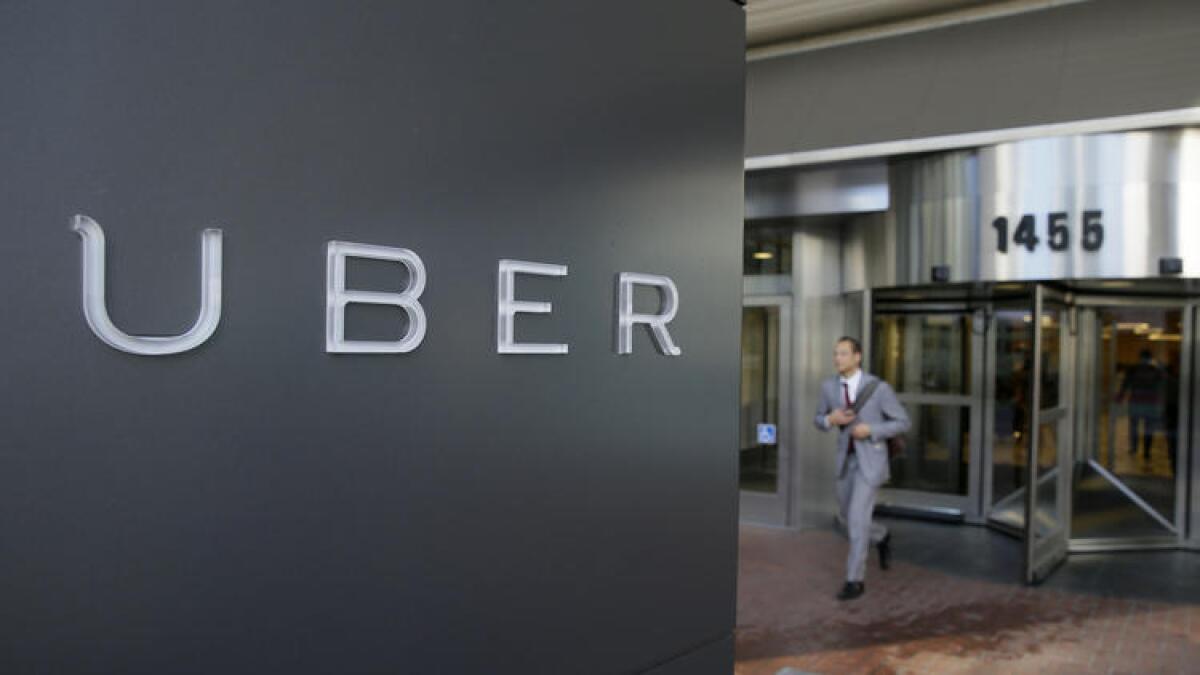
California’s ride-hailing regulator is proposing a $1.1-million fine against Uber for allegedly failing to investigate or promptly suspend drivers accused in complaints of driving while drunk or drugged.
The California Public Utilities Commission said in a legal filing that Uber hadn’t taken appropriate action in 151 cases from August 2014 to August 2015, in violation of the state’s zero-tolerance regulations against intoxicated drivers. The agency also alleged that the company’s DUI policies are too lax and do not comply with state rules.
Uber’s policy, according to the agency, is to deactivate a driver who is the subject of three unconfirmed zero-tolerance complaints. The regulator said in its filing that the policy is too lenient and that the company doesn’t even adhere to it. In at least 25 cases, the agency alleges, Uber failed to suspend or investigate a driver after three or more complaints.
Secret ‘Hell’ program reportedly tracked Lyft drivers
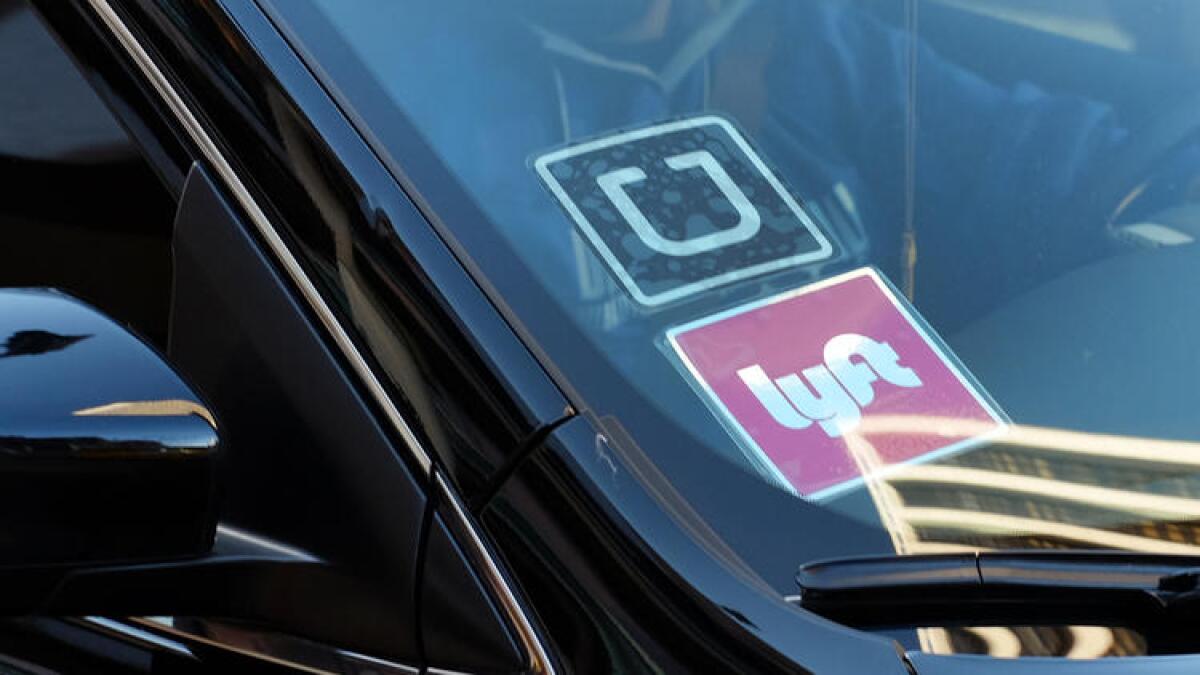
A new report says Uber used a secret software program dubbed Hell to track Lyft drivers to see if they were driving for both ride-hailing services — information that could be used to stifle competition.
The tool enabled Uber to monitor its competitor’s rates and steer additional fares toward drivers who were using both platforms, which could have influenced drivers to commit to Uber alone, according to a story in the technology trade publication the Information.
Only a small group of Uber employees, including CEO Travis Kalanick, knew about the program, according to the Information, which cited an anonymous source it said wasn’t authorized to speak publicly.
The program was discontinued in early 2016, according to the report.
A representative for Uber did not respond to messages seeking comment.
Waymo sues, alleging theft of trade secrets
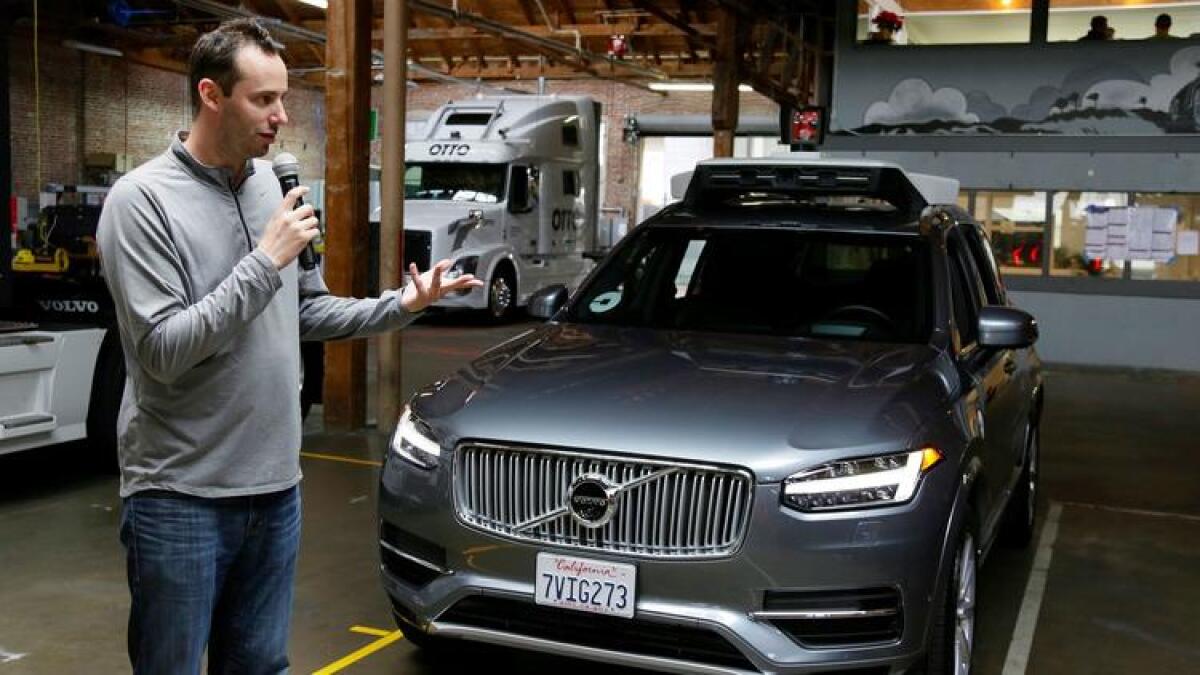
Google spinoff Waymo sued Uber, alleging theft of trade secrets. That’s a big deal, since Uber has pegged its future to self-driving vehicles.
The Waymo suit, filed Feb. 23, alleges that Anthony Levandowski — the former Waymo employee who had become head of Uber’s self-driving car division — downloaded more than 14,000 highly confidential and proprietary files shortly before his resignation from Waymo in January 2016. He went on to found self-driving truck start-up Otto, which was acquired by Uber in August 2016 for $680 million.
Waymo alleged Otto was using its proprietary technology. In addition to punitive damages, Waymo sought a preliminary injunction against Uber to stop Uber from continuing development on self-driving cars.
Later, in early April, Uber told a federal judge that it didn’t use stolen trade secrets for its driverless car project, and that therefore the court shouldn’t force it to stop that work.
Diversity report reveals: lots of men

In a bid to show that it is serious about transparency and cultural turnaround, Uber released information on diversity in its workforce.
The numbers show that Uber, like other technology companies, has struggled to attract women, Latinos and African Americans to its workforce. Nearly two-thirds of Uber’s global workforce is male, and more than three-quarters of leadership roles at the company are held by men.
The company didn’t release data about the racial composition of its global workforce, but it said that in the U.S., black and Latino workers comprise just 15% of employees. (The data do not include Uber drivers, who are classified as independent contractors.)
Uber executives also introduced a pledge to spend $3 million over the next three years with organizations trying to help underrepresented groups break into the tech industry.
Uber leaders back Kalanick
In a March 21 conference call with reporters, Uber board member Arianna Huffington reaffirmed the board’s support for CEO Travis Kalanick.
“It’s clear both Uber and the whole ride-sharing industry would not be where we are today without Travis,” Huffington said in response to a question about whether Uber’s board of directors would consider asking Kalanick to step down, given the bumpy road down which he has led the company.
“The board has complete confidence in Travis. He started as a scrappy entrepreneur and now he has to bring about changes in himself,” Huffington said. “I’m personally a big believer in leaders and companies being allowed to evolve.”
Uber’s chief human resources officer, Liane Hornsey, was also on the call and said the company would be launching unconscious bias training programs for employees, updating 1,500 job descriptions to ensure they are free of unconscious bias and continuing its search for a chief operating officer.
President quits after six months on the job
Uber’s president resigned in mid-March after just six months on the job.
The company didn’t provide public comment explaining Jeff Jones’ departure. But the tech blog Recode, which first reported his resignation, said CEO Travis Kalanick told employees that Jones decided to resign after Kalanick announced his intention to hire a chief operating officer earlier in the month.
Jones, a former chief marketing officer at Target Corp., told Recode that his values didn’t align with Uber’s.
“The beliefs and approach to leadership that have guided my career are inconsistent with what I saw and experienced at Uber, and I can no longer continue as president of the ride sharing business,” he said in a statement.
Kalanick seeks ‘a peer’ to help him run the company
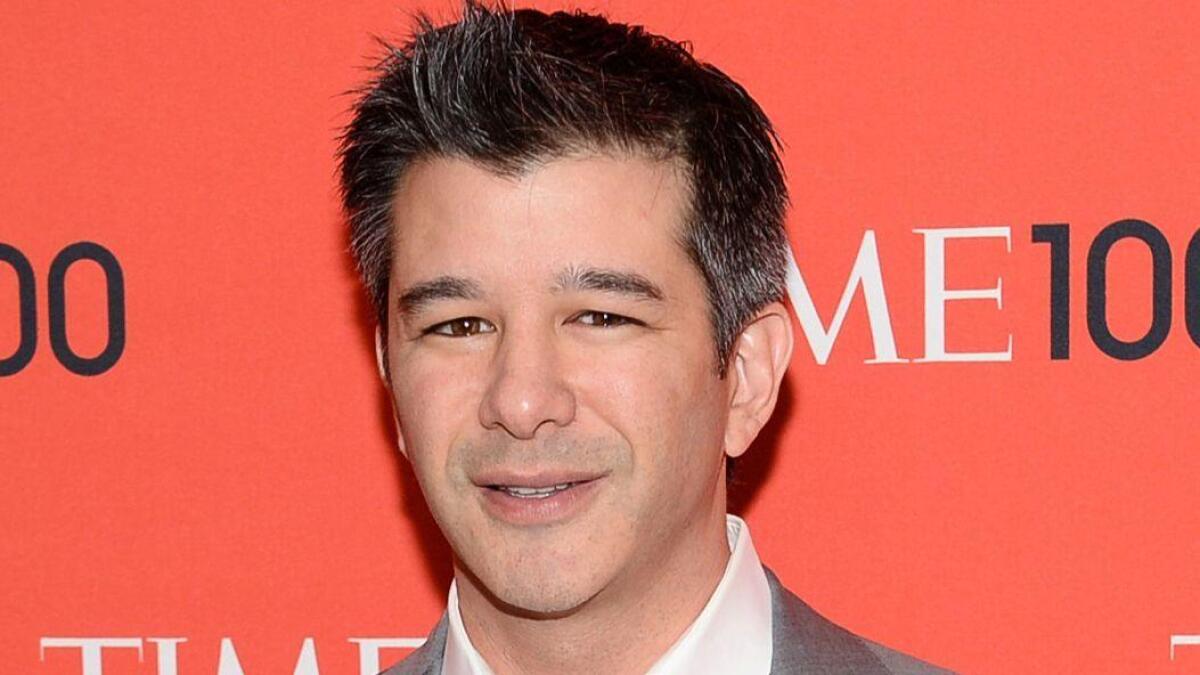
A week after saying he would seek leadership help, Uber CEO Travis Kalanick announced he had begun the search for a chief operating officer — “a peer who can partner with me to write the next chapter in our journey.”
Secret ‘Greyball’ program is revealed
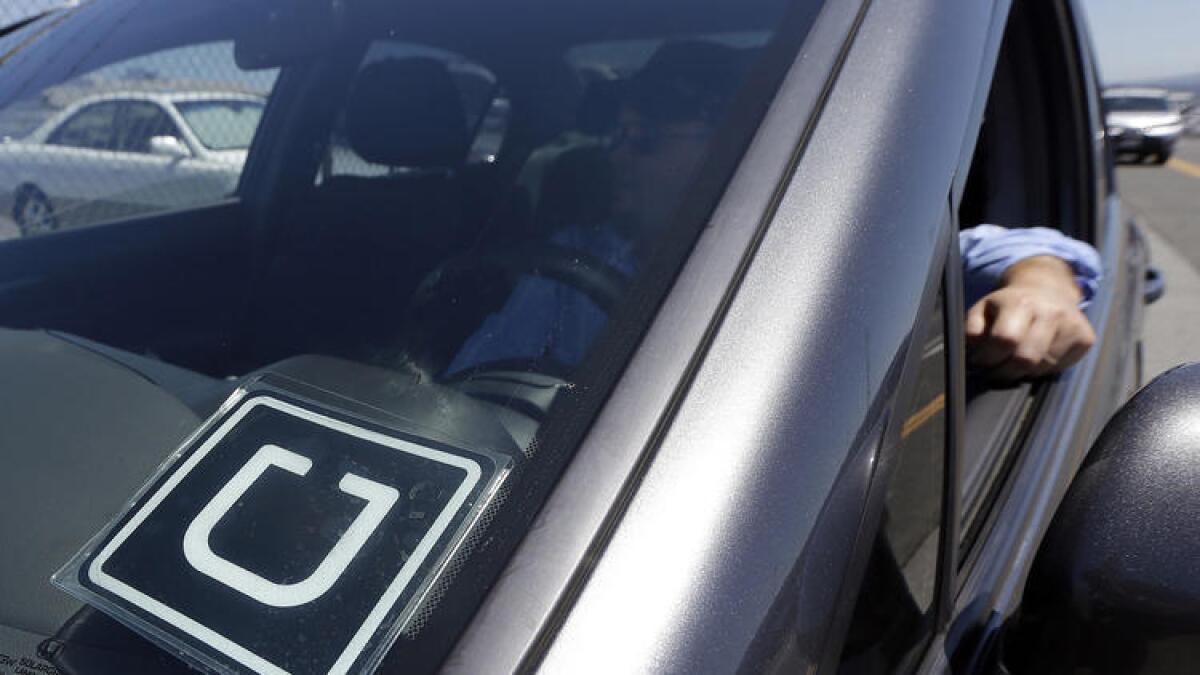
In early March it was revealed that Uber had been wielding a secret weapon to thwart authorities trying to curtail or shut down its ride-hailing service.
The program included a feature nicknamed “Greyball” that identified regulators who were posing as riders while trying to collect possible evidence that Uber’s service was breaking local laws governing taxis, the New York Times reported.
To stymie those efforts, Uber served up a fake version of its app to make it appear the undercover regulators were summoning a car, only to have the ride canceled. The company mined the data that it collects through its real app to pinpoint the undercover agents.
Uber acknowledged it has used Greyball to counter regulators working with the company’s opponents to entrap its drivers, saying Greyball was part of a broader program it developed to protect itself and its drivers from “fraudulent users who are violating our terms of service.”
Less than a week after Greyball was revealed, Uber announced that it would kill the feature.
Kalanick is caught on video berating a driver
A dashcam video released by Bloomberg News in late February showed CEO Travis Kalanick arguing with Uber driver Fawzi Kamel over Uber’s fares, which Kamel complained were too low.
Toward the end of their exchange, the video showed Kalanick losing his temper. “You know what? Some people don’t like to take responsibility for their own ...,” he says, using a vulgarity. “They blame everything in their life on somebody else. Good luck!”
After the video became public, Kalanick issued an apology to all employees, saying he was ashamed. “I must fundamentally change as a leader and grow up,” the 40-year-old executive said. “This is the first time I’ve been willing to admit that I need leadership help and I intend to get it.”
VP of engineering abruptly exits

Uber’s senior vice president of engineering reportedly was asked to leave in late February, just five weeks after Uber announced his hiring.
CEO Travis Kalanick sought Amit Singhal’s resignation after learning that Singhal had failed to disclose that there was a sexual harassment claim against him at his previous job at Google, Recode reported. Singhal said in a statement that he did not condone nor had he ever committed harassment and that the decision to leave Google was his own.
Lawsuit accuses Uber of ripping off drivers
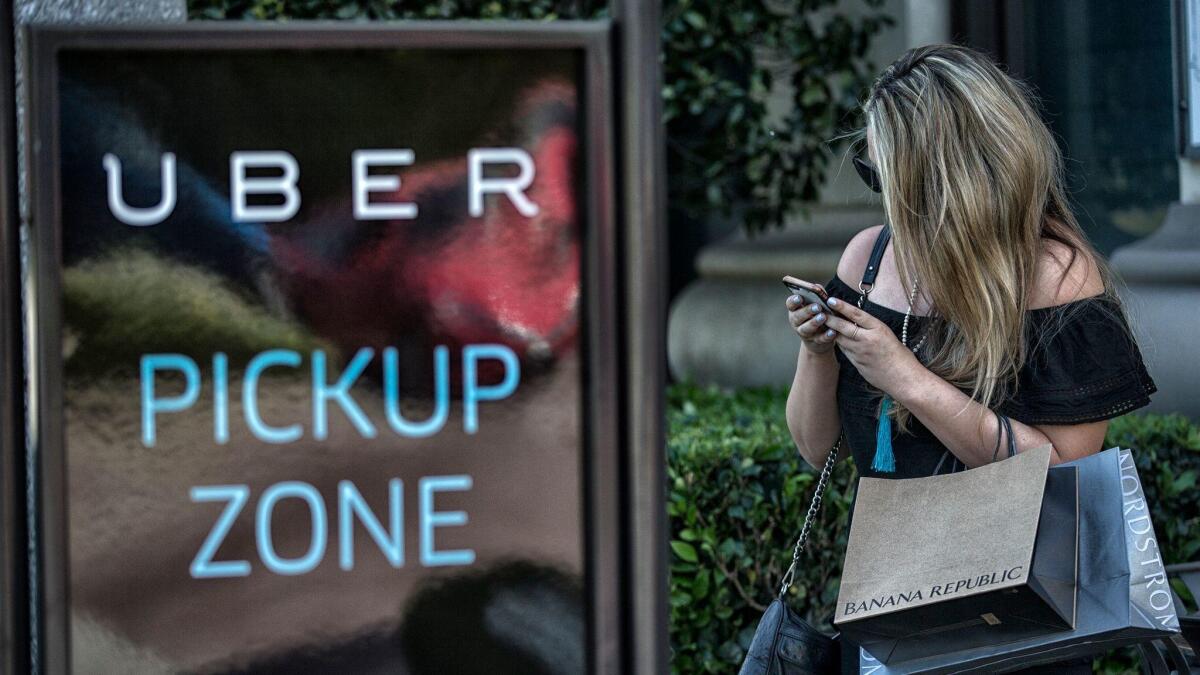
A lawsuit against Uber alleges that the Silicon Valley behemoth’s fare structure deliberately shortchanges drivers.
In the complaint, filed in U.S. District Court in Los Angeles, attorneys for the plaintiff — an Uber driver — say they seek to have the case designated as a class-action on behalf of all Uber drivers in California.
At the center of the lawsuit is Uber’s use of upfront pricing. Introduced in major markets last year, the feature provides passengers with the cost of their ride before they summon a car. Uber pitched the fare model as a way to increase transparency and address anger over unexpected rate surges when demand for rides spiked.
The lawsuit alleges that Uber essentially calculates two fares for each ride — one charged to the passenger and a cheaper one used to determine the driver’s pay. Uber, according to the suit, then can pocket the difference.
The lawsuit claims that the discrepancy between the two prices violates the terms of an agreement Uber drivers must sign, specifying that they will receive the amount charged to passengers minus a percentage the company keeps.